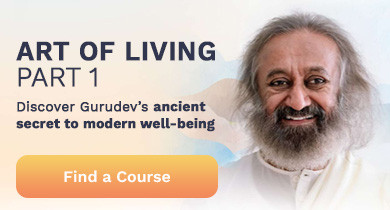By Elizabeth Herman
Jnana yoga is the yoga of knowledge. Learn about the four key pillars and how to begin your path to communing with the divine and your deepest self.
The many paths of yoga include Bhakti yoga (yoga of devotion), Raja yoga (royal yoga), and Karma yoga (yoga of service), as well as Jnana yoga (or Gnana yoga), the latter of which we’re discussing here. The path of knowledge, or Jnana Yoga (pronounced nyah-nah yo-gah), is the experiential knowledge of the Self. The literal translation of Jnana or Gyana is “knowledge.” This yogic path emphasizes wisdom through a cognitive engagement with the divine. A gyana yogi begins on this spiritual path with scriptures and talks by masters. But knowledge becomes ingrained in the seeker’s consciousness through divine grace.
The Four Pillars of Knowledge
The master Adi Shankaracharya offered four different stages on this path. They're known in classical yoga as the Four Pillars of Knowledge. They serve human beings by bringing each practitioner closer to self-realization and devotion.
Discrimination (Viveka)
You experience discrimination when you observe that constant change happens. At the same time, you notice that the divine being within you doesn't change. Our bodies, thoughts, and emotions renew and fluctuate. And the true self, the part of you that witnesses this process, doesn’t change. Identifying your own ability to witness is a goal of Jnana Yoga.
Renunciation (Vairagya)
Also translated as dispassion, vairagya involves acceptance and a lack of feverishness. You become less attached to the pleasures and pains of the world. Your consciousness remains active and enthusiastic regardless of the fulfillment of desires. This is how you can experience the second pillar of knowledge on the yogic path. When you do, you become free of unsatisfied cravings and attitudes of aversion.
The Six Wealths (Shatsampatti)
Shama, the first wealth, is the tranquility of the mind. Dama, the second wealth, is control over one’s own senses. Titiksha, the third wealth, is endurance or not getting shaken by what happens. Uparati, the fourth wealth, is rejoicing in or being with your own nature or inner self. Shraddha, the fifth wealth, is faith, or recognition of the unknown. Samadhana, the sixth wealth, is contentment or being at ease, calm and serene.
Constant Striving for Freedom (Mumukshatva)
From within, you desire the best. Total freedom, enlightenment, and the highest longing should be the goal of the yogi. These pillars and wealths already live within you, although you don’t know they do. Still, you have the ability to conceive of attaining them through yoga practice. This deep longing for the ultimate experience of bliss is the fourth pillar of knowledge.
Jnana Yoga in practice
“Knowledge of the Self brings the mind back to purity.”
~ Gurudev Sri Sri Ravi Shankar
Scriptures from all religions teach that God is omnipresent. Everyone and everything is divine. The reality of life lies beyond the senses, and you can access them through meditation and devotion. But for most people, these are only concepts in modern yoga.
Knowledge gained by reading or hearing may give rise to an attitude of “I already know it all.” This assumption feeds the ego and can be an obstacle in one's spiritual evolution. No amount of reading or information can equal a direct experience of the absolute truth of the Self. For this reason, important differences exist between Jnana and factual information. Jnana connotes knowledge that’s gained from meditation, so it’s closer to transcendent wisdom than to facts.
Wisdom is experiential knowledge of the Self. It brings surrender, universal consciousness, and devotion into one's life. Jnana is the highest knowledge. It’s wisdom that discriminates between that which changes and doesn’t change. It helps us see those things which are unreal and real. Breathing exercises (pranayama) help this process move forward.
For answers to many questions often asked of a spiritual master, check out this Q & A list. It reflects interactions about spiritual practice with Gurudev Sri Sri Ravi Shankar. You can also sign up for regular wisdom updates on yoga philosophy and knowledge. You'll find a form to sign up at the bottom of the question and answer page.
For access to more spiritual practice, check out Beyond Breath - A FREE Breath & Meditation Online Session With a Live Instructor. You’ll learn about SKY Breath Meditation. It has helped millions of people to gain true knowledge, feel happier, and live healthier.
Written by Elizabeth Herman based on wisdom talks by Gurudev Sri Sri Ravi Shankar
New to yoga? Explore Yoga 101: A Simple Guide to Practice and Philosophy to Help A Beginner.





























